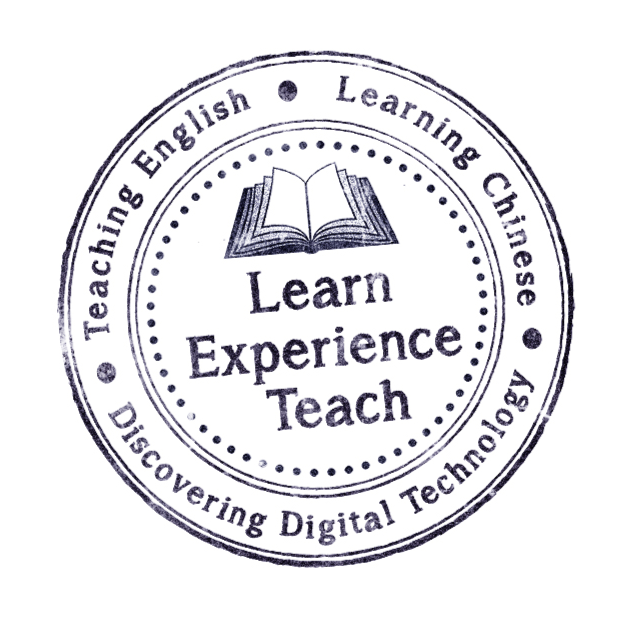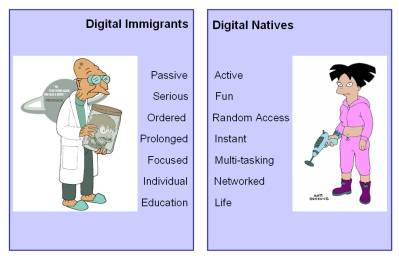The distinction between digital natives and digital immigrants is inaccurate as it is too simplistic and misleading.
My Reflections
In his work Digital Natives, Digital Immigrants, Prensky (2001) makes unfavourable assumptions about teachers and their abilities to react in a sensible manner to changes in their environment. Describing Digital Immigrant teachers as those who, “… choose to teach – slowly, step-by-step, one thing at a time, individually, and above all, seriously” (p2), I find myself offended, at best. I do beleve that identifying those who have digital skills, and understanding their differing degrees of competence, is useful. However, the adoption of the terms ‘native’ and ‘immigrant’ engender unhelful negative stereotypes, which solidfy an “us and them” division.
Thus, the distinction Prensky highlights is misleading, yes, with detrimental connotations. The native-immigrant terminology paints an imagery of territorial warfare, with the ‘native’ group protectively laying claim to a new found land (which probably actually belongs to someone else), where anyone ‘other’ or ‘alien’ or ‘different’ is referred to as ‘immigrants’. “As Digital Immigrants learn – like all immigrants, some better than others – to adapt to their environment, they always retain, to some degree, their “accent”, that is, their foot in the past” (p2). Similarly, there may be some unfavourable associations as regards those with stronger economic power to access digital technology, for example, those in ‘the West’, creating a clear dividing line between the ‘haves’ and the ‘have nots’.
For me, ‘native’ implies an expert status, whereas it is overly simplistic to assume that because one is born into the digital age that one has mastered all of the skills that come with it, or that there is no room for improvement. (Prensky, 2001: 5). Indeed, some natives may have operational competence of certain digital tools, but they may not necessarily have the wherewithal to execute or implement ideas using said tools, effectively. Indeed, this may be where the traditional-thinking digital immigrants have a role to play.
Drawing out the positive, then, I see that there are constant changes in our social spaces which, in order to make our lives more effecient and meaningful, we can align ourselves with, or, at least, get better acquainted. That said, in the language learning context, I think that it is important to to identify and understand the knowledge and capabilities of our students in order to help fill their knowledge gaps. It may that our students fall into a number of different skill ‘groups’. Deeper understanding of our students, their learning preferences and general way of thinking, will allow us to make better decisions about what tools are appropriate for their needs. Deeper understanding of digital tools, their functions and purpose, will allow us to make better decisions about their application. The ability to synthesise this information and select the best methodology and tools in context, requires a certain wisdom. Indeed, some years later, Prensky re-imagined the future of digital natives and immigrants as being replaced by a certain Digital Wisdom. For him, “Digital Wisdom means not just manipulating technology easily or even creatively; it means making wiser decisions because one is enhanced by technology” (Prensky, 2008).
Finally, I think that there is some irony in the fact that as we live in a never-ending (r)evolution of change, the very moment digital natives achieve the highest status of operational competence and effective implementation of current technical knowledge, they may very well revert to digital immigrant status themselves, as a new wave of technological advancement washes through.
Prensky, 2001, Digital Natives, Digital Immigrants
Prensky, 2008, From Digital Immigrants and Digital Natives to Digital Wisdom


